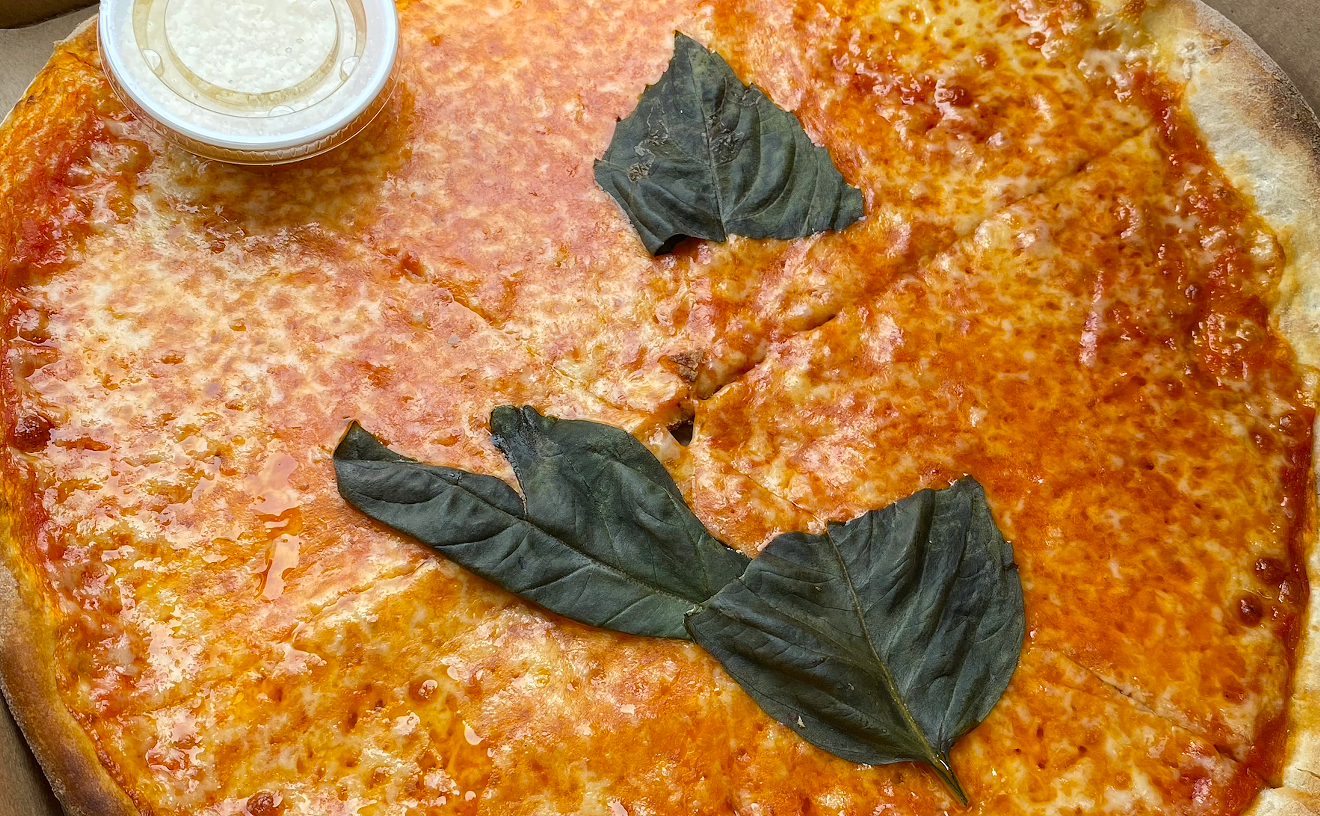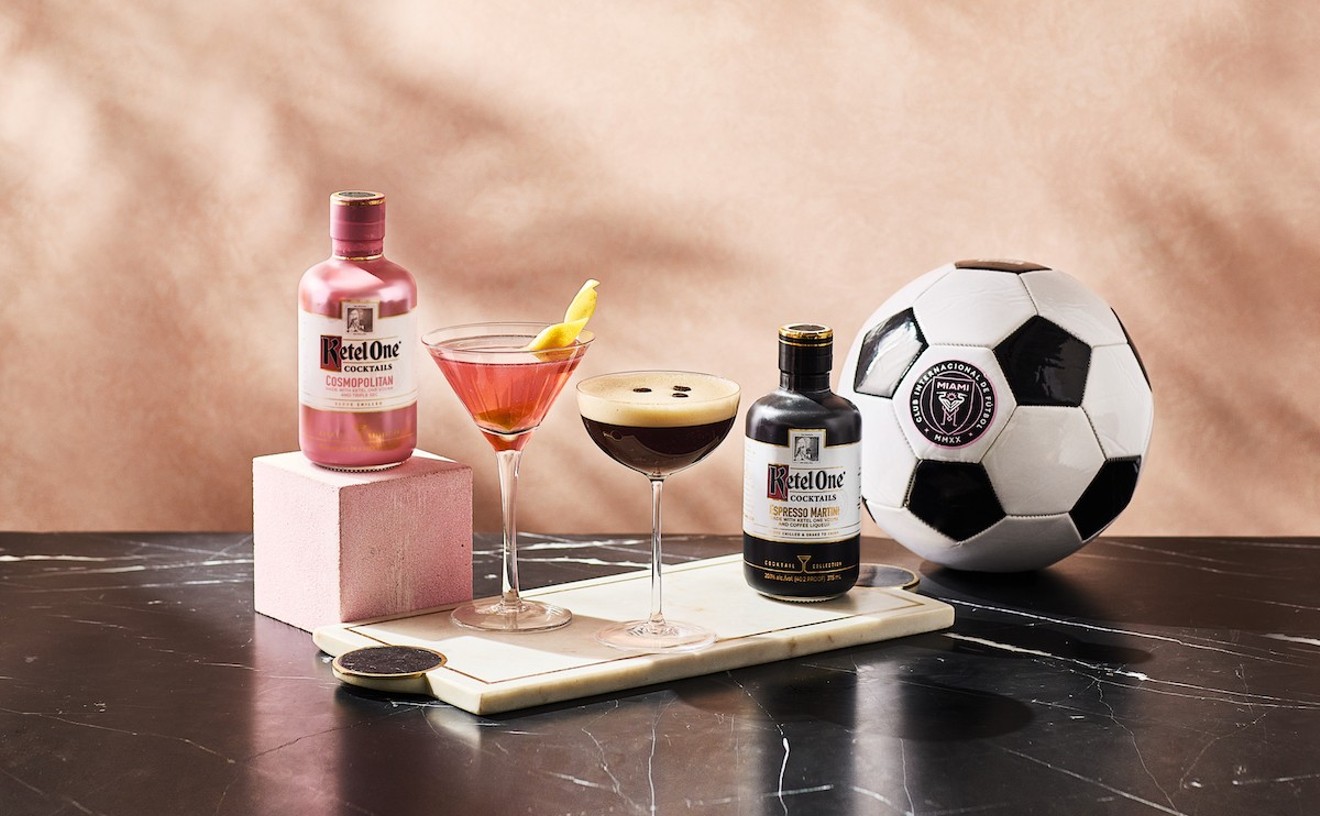The Peruvian street food anticuchos is a dish with magnetic properties — you're either instantly attracted to or completely repelled by it. The grilled chunks of meat are actually beef hearts. But if they're rendered properly — like the ones at Taurus Steakhouse in Tamarac — they taste more like fine tenderloin than gamey offal.
At Taurus, the anticuchos come in kebab-sized pieces, marinated in cumin and garlic and grilled to a satisfying char. Picked off long wooden skewers and dunked in a half-dozen Peruvian sauces, the result is powerfully beefy, like how the adrenaline-filled flesh of a prized fighting bull might taste after battle. Peruvians clamor for the organ meat, and for good reason: You take a bite of the snappish flesh and imagine that it's somehow imparting upon you the very essence of that magnificent creature. It's an experience so intoxicating, it borders on the spiritual.
The precise attribute that makes something like anticuchos so repulsive to unfamiliar palates — that it's a "waste" cut most people would feel perfectly comfortable feeding to their pets but not themselves — is also what makes it so honest and appealing. That the chefs at Taurus Steakhouse can take that sort of unconventional bit of steer and transform it through spice, flame, and nearly 40 years of accumulated technique is a thing of beauty.
The 4-month-old Peruvian steak house, or parrillada, serves eight cuts of beef, everything from prime filet mignon right on down to entraña (skirt), vacio (flank), and picanha (top round), each transformed into steaks as unique in texture and flavor as their luxurious counterparts. You'll also find lamb, delicately seared as savory costillas (rib), or thin-cut slices of pierna (leg). Pork shows up as white, tender chops and loin. Not to mention the chorizo, morcilla, chargrilled kidneys, and those bold, luscious anticuchos. There's not much else besides meat: There is no ceviche, no yucca, no lomo saltado, those staples of Peruvian cuisine. The menu more closely resembles an Argentine parrillada than a typical Peruvian restaurant, but the flavors employed by Carlos Habaue and family are distinctly peruano.
Carlos learned the craft from his father, Eduardo Habaue, who opened his first steak house, Parrillada Canada, in Lima in 1974. By the early '80s, the Japanese-descended Habaue had opened four other steak houses in Peru around the same time the terrorist group Shining Path was descending from the Andes and snatching people up for ransom or worse. After high school, Carlos and his siblings came stateside for college. A year ago, the Habaues decided to invest together and open Taurus in their new home.
The restaurant represents that family aesthetic well: The 40-seat dining room is modest but attractive, with creamy taupe walls framed by hatched, cherry wallboard and a collection of art paying tribute to bulls. Thick Panama blinds shade the dining room from the strip-mall environs outside, and a dozen or so matching cherry-hued tables are dressed with bottles of house wine and white-plated settings — most of which sat empty on my two visits.
As we walked through the door into the empty restaurant, devoid of the clinking of plates and the hum of conversation, we felt like the only group showing up for a party. In a room this still, you almost feel like you have to whisper. Fortunately, the wait staff at Taurus is friendly and talkative (they're also fluent in English and Spanish).
They're quick with a bottle of wine too, which tends to loosen tongues and ease tensions faster than a packed dining room ever could. Sadly, the steak house features only four bottles, two white and two red. Equally questionable is the beer selection, which oddly boasts Corona among its imports, when something like the popular Peruvian beer Cusqueña would fit better. We opted for a bottle of Septima ($6.50 a glass, $26 a bottle), a blend of 60 percent Malbec and 40 percent Cabernet Sauvignon from Argentina's Mendoza Valley. Where the Cab adds a tart, acrid kick, the plumy Malbec sings in harmony with the smoky, earthy flavors of grilled beef.
A mark of a great steak house is often in the sauces, and Taurus serves you a veritable rainbow of five as soon as you sit down. The neon-orange aji amarillo and scallion sauce is similar but slightly grassier than the cooling huancaina, a mixture of Peru's native yellow pepper, queso fresco, and evaporated milk. A forest-green sauce is made with huacatay, a Peruvian herb with a taste similar to mint and cilantro that's great on steak. Another pinkish sauce is made with red bell peppers, garlic, and mayonnaise. Only the chimichurri was disappointing — it would fare better if made with fresh garlic as opposed to the jarred stuff. You can sample each with some soft, airy bread before moving on to fare like shrimp and mushroom brochettes ($8.50), skewers of lightly seasoned, plump grilled shellfish given to disappearing off the plate faster than they can be delivered.
The room was still empty, but we were starting to feel at home by the time the anticuchos ($7.50) arrived, six pieces of which come with a typical pairing of irresistible grilled yellow potatoes. Our server could barely contain his enthusiasm when he delivered ours. "You like the anticuchos?" he slipped through a widening smile. As we nodded along, munching on those delicate chunks of heart, I got the feeling he enjoyed serving them almost as much as we enjoyed eating them. Almost.
It was easy to forgive the passable house and caesar salads served before our entrées, especially when operating on such a pleasant buzz from the wine and meat. (The same lack of attention to detail plagues the side dishes — Taurus offers only mashed potatoes, fries, steamed veggies, or rice and beans.) Personally, I was saving room for the real prize: a plato of grilled short ribs ($12.50), four hunks of beef cut across two bones and gushing with savory juices. The tenderness of the gristle-free ribs was eclipsed only by the vacio ($13.50), a flank cut that sports a pronounced yet plush grain. At nearly two inches thick and cooked to a perfect char set around a square of attractive ruby red, my vacio was a far cry from the thin, leathery flanks weighing down supermarket coolers. It also needed no sauce beyond the rich pool of juice it left behind. Come back for lunch and a hefty piece of beefy vacio, along with a side and salad, will set you back only $7.50 (and maybe require a nap afterward).
Taurus' parrillada ($36.50) is steeped in South American tradition. It's a dish designed to be shared among friends and family, a mountain of meat constructed of the flesh of no fewer than four animals and big enough to feed an equal number of humans. Its spoils were many: more anticuchos and some slightly chewy kidneys; thin slices of marinated pork loin, lamb, and beef; half a rotisserie chicken that, though it went largely untouched by our red-meat-hungry crew, was exceptionally juicy and flavorful; and two sausages, a rich, porky chorizo and a pungent piece of black-as-night blood sausage. No parts were spared, and I would not spare them. My companions squirmed and squinted at the tubular vessel of congealed blood and spice, denying my every move to stealthily push a smidge on to their plates. They stretched instead for the thin-cut steak, for the lamb and pork and anticuchos, slicing and passing samples to one another as if tasting every last piece on the plate was some sacred duty. No problem — that's more morcilla for me to slather across bites of meat and spread into the delicious, grainy mashed potatoes Taurus serves snow-capped with Parmesan cheese.
We bickered over who would snatch the last few pieces of meat from the parrillada, not because we wanted them to ourselves but because the thought of taking home a pound of leftovers seemed absurd. We sat and finished our wine for a while as plates were cleared and shuffled away. An odd transformation had occurred at some point during the meal: Through all the passing of meat, the refilling of wine glasses, the sharing of bounty with those you hold dear, the empty restaurant seemed to contract snugly around us. We were left to float in the glowing wake of a meal that would feel far more decadent, more indulgent, if not for the humble nature of it all.










